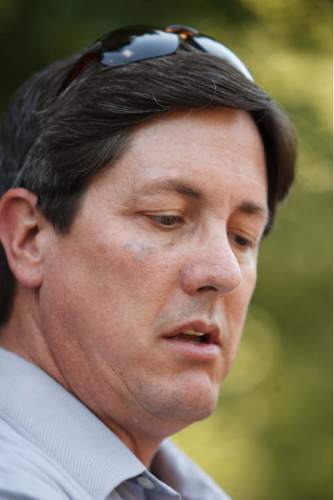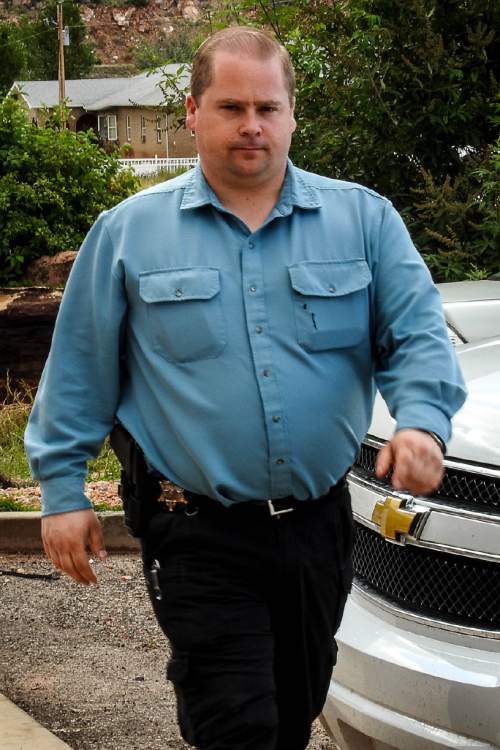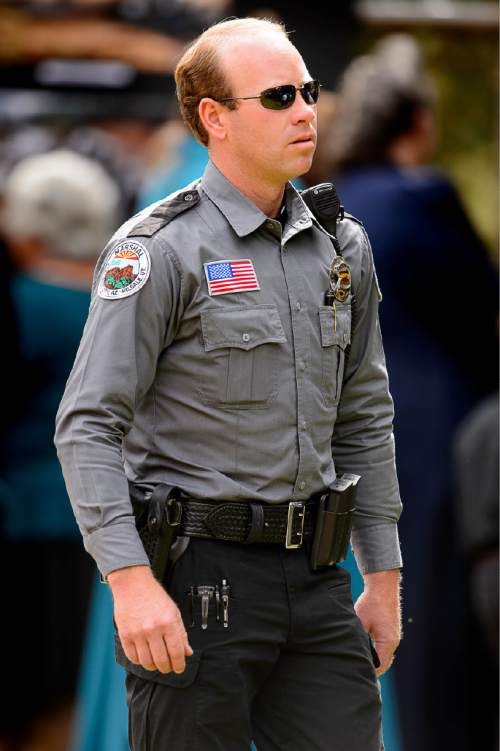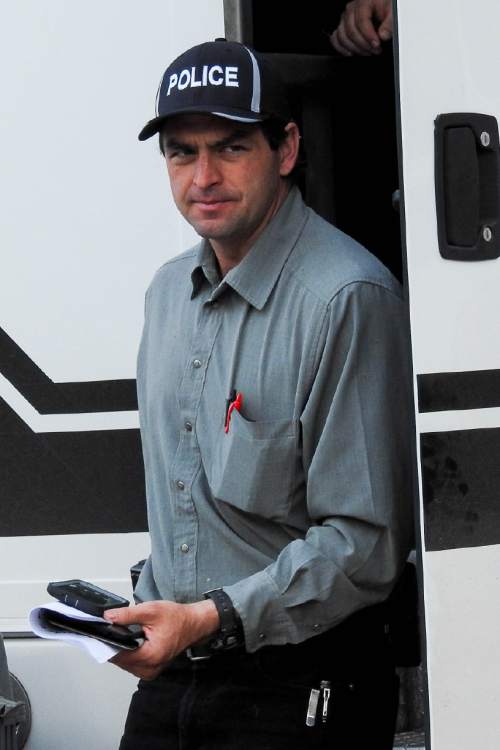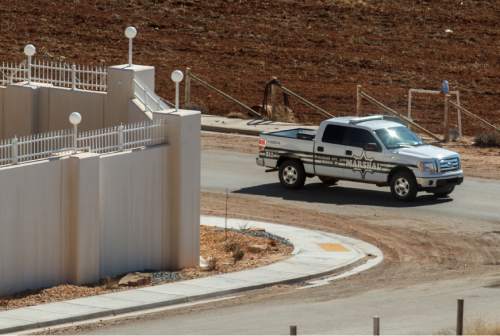This is an archived article that was published on sltrib.com in 2016, and information in the article may be outdated. It is provided only for personal research purposes and may not be reprinted.
Problems in the polygamous community along the Utah-Arizona line are not so egregious that the towns should lose their police force or have a monitor oversee the municipal governments, lawyers for the towns argued in court filings late Tuesday.
The lawyers point out that the police in Hildale, Utah, and Colorado City, Ariz., have not been found to have committed racial profiling, theft, drug trafficking or perjury like some police forces across the country, including the one in Ferguson, Mo.
The attorneys point out that at a civil trial earlier this year, a Phoenix jury found the towns and their police, referred to as marshals, not guilty of unreasonable searches, unreasonable investigative stops and excessive force.
Losing the marshals and adding a monitor "would strap the cities with layers of bureaucracy, increased costs and governmental intrusion disconnected from the facts in this case," defense attorneys wrote. "And neither is supported by the case law or the jury's findings.
"The United States' request to disband the marshals' department is unprecedented."
Lawyers for Hildale and Colorado City were responding to a brief filed in April by the U.S. Department of Justice. It wants the towns' joint police force disbanded. The Justice Department also wants a judge to assign an independent monitor to watch over municipal staff and have access to city meetings and documents.
The Justice Department and residents of the towns have claimed the marshals and municipal governments operate as arms of the Fundamentalist Church of Jesus Christ of Latter-Day Saints and are loyal to its imprisoned president, Warren Jeffs.
A jury in Phoenix found in March that the towns and the marshals discriminated against people who did not follow or were out of favor with FLDS leaders. Those people were denied city services such as permits, utility connections and police protection, the jury found.
The jury also found the marshals had a practice of unreasonably seizing property and people and making arrests without probable cause.
The judge in the case has scheduled a four-day hearing in October to consider what changes he should order in the towns. Whether to boot the marshals is likely to be the most contentious part of the hearing.
Arizona asked a federal judge to disband the marshals after the towns lost another discrimination lawsuit in 2014. That judge declined the request. That case was narrower, focusing on discrimination against one family in Colorado City. The Justice Department case looked at discrimination to residents in both towns.
The towns have agreed to pay a total of $1.6 million to nine people in the communities. The towns and their water utility also will each pay a $55,000 penalty.
In the brief filed Tuesday, the attorneys for Hildale and Colorado City, collectively known as Short Creek, wrote that their clients are willing to adopt new nondiscrimination policies and undergo nondiscrimination training. But the lawyers rejected the bolder requests of the Justice Department.
The defense attorneys pointed out that the Justice Department has not sought disbanding and monitors for other police forces it has accused of systematic abuses. One of the police forces the lawyers singled out was Ferguson, where a Justice Department investigation found racial profiling, unreasonable stops and seizures and excessive force, such as shocking suspects with stun guns and siccing dogs on them.
"Despite these constitutional violations, the United States did not request to disband the Ferguson Police Department," the Hildale and Colorado City lawyers wrote. "Instead, it recommended that the department adopt new policies, provide training to its officers, implement measures to reduce bias, improve supervision and develop mechanisms to deal with officer misconduct."
Under the Justice Department plan, sheriffs on both sides of the state line would take over policing Short Creek, which has around-the-clock police protection. But the defense lawyers point to statements by Washington County (Utah) Sheriff Cory Pulsipher that he does not have the manpower to staff officers full time in Hildale.
The lawyers for the two towns also asked the judge to reject a Justice Department request that Colorado City adopt a plan to subdivide property in the towns.
A trust, called the United Effort Plan, once controlled by the FLDS but taken over in 2005 by the state of Utah, has for years sought to subdivide residential property so it can sell or give away homes to beneficiaries of the trust. The UEP has said the denials are unreasonable and is costing the trust money. The issue is in litigation in courts in Arizona, and lawyers for the town on Tuesday wrote that that is where the issue should remain.
A subdivision plan in Hildale was approved in 2014 after the town lost a case before the Utah Supreme Court.
Twitter: @natecalrisle —
New detention hearing set for Lyle Jeffs
Lyle Jeffs, the man who was running the day-to-day operation of the FLDS before his arrest in February, will have another chance to go free before his trial.
Federal Judge Ted Stewart has scheduled a June 15 hearing in which Jeffs' lawyers can renew their arguments to release him. Stewart has ruled that Jeffs should remain in jail, but that was when his trial was scheduled to begin May 31. The trial was later rescheduled for Oct. 3.
Jeffs and 10 others are charged with conspiracy to defraud the food stamp program and conspiracy to launder money.


